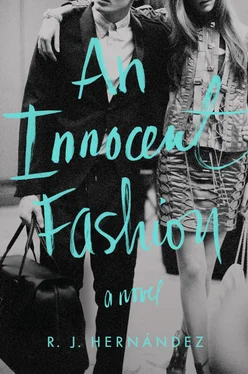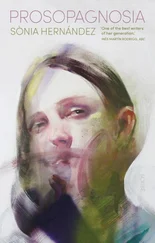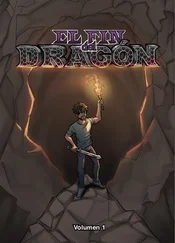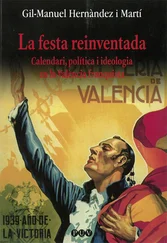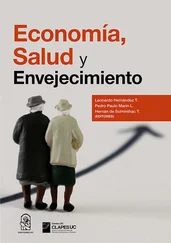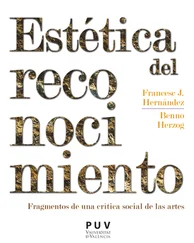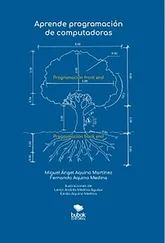He was on his feet again. “Is there anything else they can have on their heads?” He poked through the assortment of hats which had been laid out for his perusal. Suddenly, he was seized with inspiration: “THIS. This is it.” He raised up an article from the table with two fingers, for all to see. From my occluded view, it was just a piece of limp fabric — like a soggy piece of cheesecloth. “We need more like this. It’s perfect. Just imagine it with Look Fourteen from the Marc Jacobs collection, and the thigh-high Ferragamos in patent leather.”
The editors scribbled furious notes, nodding fervently. “You’re absolutely right,” gushed Christine, the other associate fashion editor, who resembled Clara in every way except for the fact that she was white.
“I do looooove that,” Clara sang.
I watched Will hastily replicate the formless “hat” on his clipboard with a stream of epiphanic scribbles. “I totally understand your vision now,” he said. (After the run-through, my own investigation of the captivating headpiece resulted only in confusion, as I remained convinced it was a piece of cheesecloth which had accidentally ended up there.)
“Ooohh, this one I love too.” Edmund held up a plastic see-through hat.
I didn’t understand — hadn’t he just said, “ no plastic ?” Nobody else seemed much surprised.
“Can we see if something can be done about these wrinkles, though — Susan, why don’t you steam this?” Edmund held out the plastic hat to the side and dropped it in Sabrina’s general direction. She caught it with one hand while continuing with the other to rub the spot on her shoulder where one of the heels he had aimlessly tossed had just clopped her.
“Will, who is doing transparent this season? We need more transparent pieces. Definitely shoes with transparent heels — how about those ones from Michael Kors, can you get those in by this afternoon maybe?” He was careening fast now. “If only Burberry wasn’t doing transparent in those garish shades — it’d be smart to work in a few Burberry pieces. See if they don’t have a bag or something in regular-transparent, not purple-transparent or orange-transparent or any of those other obscene variations they did this season. Also anything transparent by Wang — Alexander, not Vera — and how about those clutches by Gucci, with the gold studs? Christine, that’s your market, right?”
Later that day I would learn that Christine covered all the designers that held runway shows in Paris or Milan, while Will focused on the ones showing in New York and London.
“How are we on credits this issue?” Edmund asked.
Clara flipped through the pages on her clipboard. “We have to squeeze in a Longchamp credit — if we don’t feature some pieces, they’ve threatened to pull their ads again.”
It had never occurred to me that the contents of Régine ’s pages were determined by anything other than aesthetics — let alone by the politics of pleasing advertisers.
“ Blegh ,” he replied. “Let them pull the ads, they’re hideous.”
“We should really include some Céline, and like you said, some Burberry would be good — they’re running a six-page spread to kick off their new perfume. Although like you said,” she added, to reassure him she had been listening, “we couldn’t possibly feature anything in those garish shades.”
Edmund glanced at his watch. “All right, that’s enough,” he said, swinging a tassel on his cape. “Thank you everyone for your work, and keep me posted — although don’t expect a reply — and, oh!” He swiveled back around, serious once more. “None of what happened last week with that Dior shoe — that was very disappointing, and an embarrassment. If I ask for it specifically then I’d better get it, and if PR says no, then one of you must have a good reason for me.”
Everybody nodded, and he waved over his shoulder as he swooshed through the door. The editors were huddling together, clucking in hushed voices, when suddenly the door flew open and Edmund poked his turbaned head through the crack. “Does anybody have any contact solution? My eyes are all dried up again.”
Sabrina pitter-pattered over to her desk to get some, and he plucked it from her hand—“Thank you, Susan”—and disappeared again.
George was on his feet. “Time to clean up,” he said, snapping his unscathed fingers in my face, no blood in sight.
What I hadn’t realized while watching the run-through was that a complete upheaval of everything George and I had prepared that morning had occurred just beyond my narrow view in a period of less than fifteen minutes. Velvet-lined accessory trays had been dumped out, carefully lined-up shoes tossed asunder. I half-expected a Jacobin from the French Revolution to pass by with a flaming torch, having lost his way to the Bastille and desecrated the wrong place.
Sabrina shot past our desk, still rubbing her arm. “George, have you grabbed lunch?” she asked, taking a seat at her cubicle.
George shook his head.
“Go. Fifteen minutes.”
George rushed out, and Sabrina said, “Ethan, I need to speak to you. Bring my credit card and your cab receipts.”
My stomach turned. From the excitement in her razor-like tone, I could tell this was going to be enjoyable for only one of us. I dragged myself over to her desk and pulled out the two cab receipts I had stuffed into my pocket, followed by her credit card, and slid them toward her keyboard.
As though by handling her credit card I had somehow contaminated it, she brushed it exaggeratedly against her black blouse. “I really hate to reprimand you on your first day, Ethan,” she said with disingenuous docility, “but perhaps I was unclear.” She used the edge of her corporate card to flatten out my crumpled receipts, ironing them out once, twice, three times against her desk to demonstrate to me the unacceptability of wrinkles at Régine , then looked up. “I hired you as an intern .” She returned her card to the designated slot in her Céline wallet. “You’re nobody’s equal here — not even George’s.”
She bent over to return her wallet to a black Hermès bag at the foot of her chair, while I waited like a carcass hanging from a butcher’s rack. The handbag fell into the recesses underneath her desk, where her delicate ankles were crossed beneath her black lamé skirt. She turned back up toward me and folded her hands coolly over her knee.
“That incident ten minutes ago will be the last time in this office you speak before being spoken to. Interns just don’t do that here. You just don’t do that here. Not to mention that at Régine , ten past two o’clock is not the same as two o’clock.” She put a cold hand on my forearm. “I’m not mad, of course. I mean, I’m sure things were different at Yale,” she said, with a crackling veneer of compassion. From the cock of her eyebrows, and the satisfaction in her curled lips, I knew the knife in my stomach was coming next: “Unfortunately, here you’ll have to work for the right to be treated as an equal.” She exaggerated the word “work” as if she were teaching it to me for the first time.
Then she rewrapped her fingers around the handle of the blade and gave it one last twist. “You said it’d be easy, right? Who knows? If you work hard enough, then maybe. Didn’t you want a job here?. Maybe one day you can have this.”
She gestured across the six-by-six-foot corkboard cubicle that I was meant to covet — and which, in so many ways, I did — then, catching a glimpse of an unread e-mail, she gasped “Prada!” and her hands were sucked toward her keyboard like magnets.
The e-mail that had swallowed her undivided attention had the subject line Emergency . Prada needed reassurance that Look 7 could be picked up from the set of Edmund’s white-themed photo shoot in time for a W cover shoot the next day. I knew this because in Sabrina’s spacious cubicle there was nowhere else to look but over her shoulder at the computer screen, and I couldn’t help but read what was there. I wasn’t sure if I had been dismissed, but Sabrina’s words had left me flush, and the awkwardness of standing there was merely deepening the discomfort of my debasement.
Читать дальше
